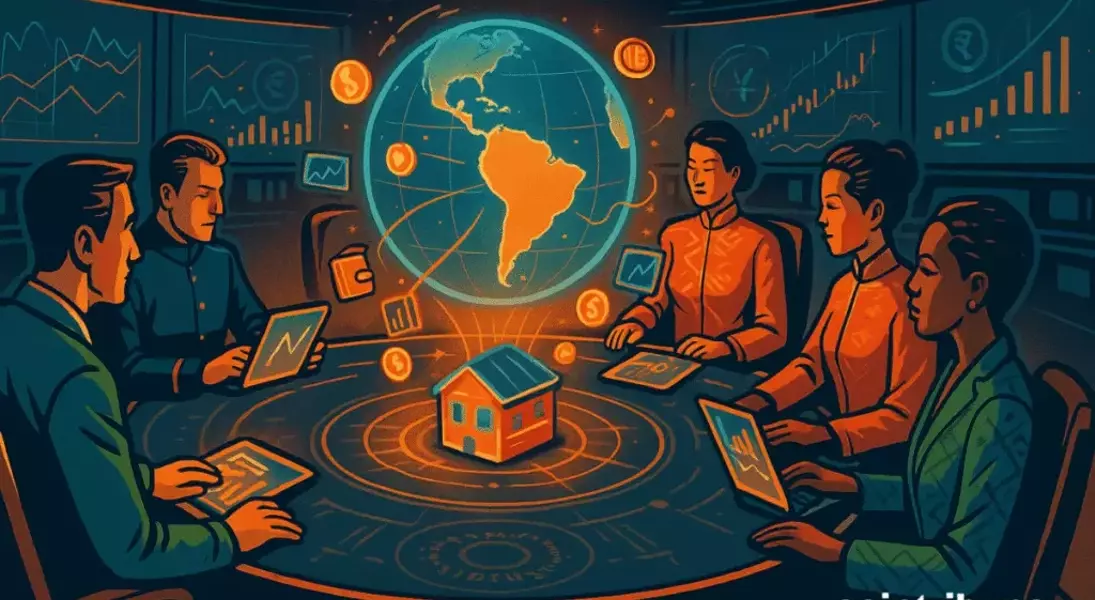



Redrawing Economic Borders: The Dawn of a New Era
In an era marked by shifting alliances and evolving power dynamics, the BRICS nations are taking decisive steps to reshape the global financial order. With the launch of this new investment mechanism, they seek not only to empower their allies but also to provide viable alternatives to traditional Western-led institutions like the IMF and World Bank.
BRICS Initiative: Building Bridges for Emerging Economies
As the world moves toward greater decentralization, the BRICS initiative emerges as a beacon of hope for countries eager to break free from Western financial constraints. This collaborative effort, spearheaded by Russia and China, aims to stimulate growth across South Asia, Africa, and Latin America through strategic investments aligned with local needs and priorities.
The foundation of this project was laid during last year’s BRICS summit in Kazan, where Vladimir Putin introduced the concept of a unified investment platform. Since then, discussions have intensified, culminating in the upcoming summit in Rio de Janeiro, where concrete plans will be unveiled. By prioritizing regional development over global influence, this initiative promises to deliver tangible benefits to participating nations.
A Strategic Leap Toward Multipolarity
Beyond its immediate economic objectives, the BRICS investment platform embodies a broader geopolitical vision. It seeks to dismantle the entrenched structures that have long favored Western interests while fostering a more balanced and inclusive global economy. Through this endeavor, BRICS members aim to position themselves as leaders in a new era defined by mutual respect and equitable partnerships.
This initiative also reflects the growing importance of digital technologies in modern finance. By incorporating advanced tools such as blockchain and digital assets, the platform hopes to streamline transactions, reduce costs, and enhance transparency for all stakeholders involved. Such innovations could pave the way for groundbreaking solutions that transcend conventional boundaries.
Challenges and Opportunities on the Horizon
While the potential rewards of this venture are immense, it is not without its challenges. Critics argue that establishing a fully functional alternative to established financial systems may prove difficult, especially given the complexities inherent in managing cross-border operations. Moreover, ensuring widespread adoption among target nations will require sustained effort and clear communication of benefits.
Despite these hurdles, proponents remain optimistic about the platform's ability to catalyze meaningful change. They point to the increasing dissatisfaction with current arrangements as evidence of a ripe opportunity for transformation. As more countries express interest in joining this initiative, the stage is set for a dynamic reshaping of the global financial landscape.
Looking Ahead: The Roadmap to Success
To ensure the success of this ambitious project, BRICS leaders must focus on building trust and demonstrating tangible results. This involves developing robust frameworks for governance, accountability, and dispute resolution within the platform. Additionally, fostering collaboration with other emerging powers and leveraging complementary strengths will be crucial in achieving long-term sustainability.
Ultimately, the impact of this initiative extends far beyond mere economics. It symbolizes a fundamental rethinking of how nations interact and cooperate in pursuit of shared prosperity. As the Rio summit approaches, all eyes will be on whether this vision can translate into actionable outcomes capable of transforming the global order.
